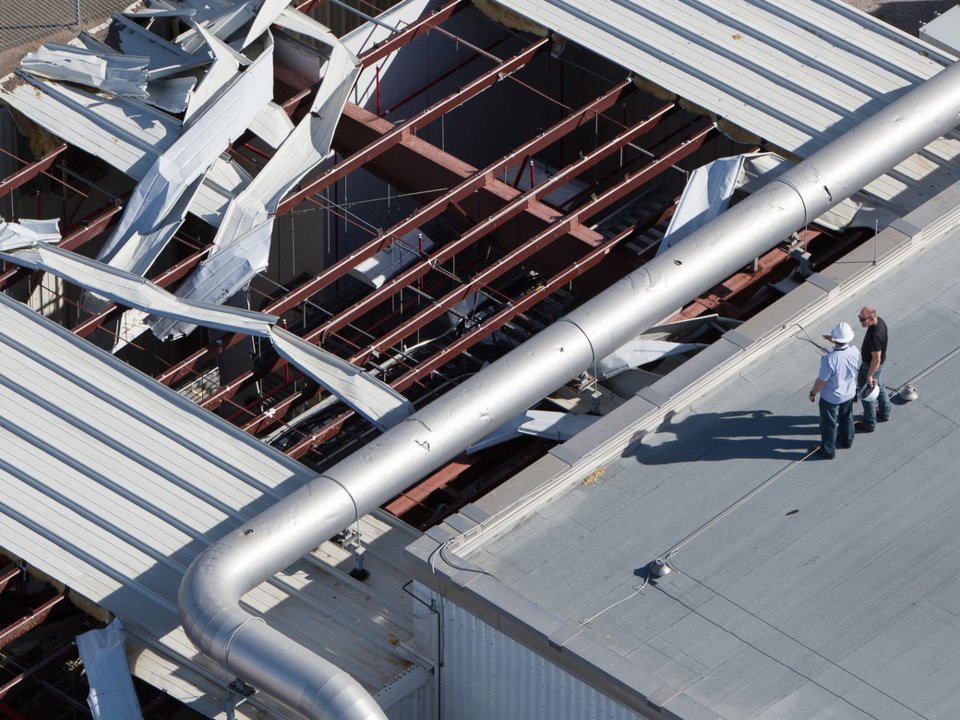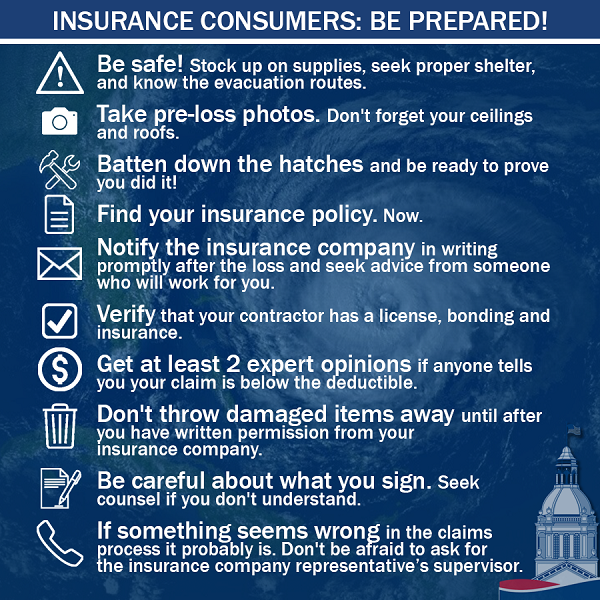by Zoltan Hovanyecz | Oct 19, 2018 | Florida Insurance, Hurricane Irma, Property Damage
 Hurricane. Fire. Water. No business wants to shut down from a natural or man-made disaster. When disaster happens, will you be ready to ensure the continuity of your business?
Hurricane. Fire. Water. No business wants to shut down from a natural or man-made disaster. When disaster happens, will you be ready to ensure the continuity of your business?
Insurance for your business consists of many aspects, the major one being business interruption. Business interruption is recovery for lost business income while your business is non-operational as a result of a covered insurance claim. While the protection from this type of coverage is invaluable, business interruption must be purchased in addition to your standard business insurance policy. Having business interruption coverage keeps you protected for lost profits during downtime.
Business interruption typically covers the period beginning when the company operations have ceased or been reduced due to a loss which is covered by the insurance policy (such as a hurricane) through the time that business operations have returned to pre-loss condition. Insurance companies label this time as the “period of restoration.” There are limits on how long a business can be in the “period of restoration” while policy benefits continue to be paid. In other words, you don’t have an unlimited amount of time to rely on your business interruption coverage bring your business back to full operational capacity after a loss.
Business interruption will also cover a limited amount of extra expenses incurred during the period of restoration that are deemed necessary. For example, if you have to hire additional staff to meet production demands due to equipment breakdown after a loss, extra expense would cover this. As with everything else, there are limits to extra expense recovery.
THINGS TO KEEP IN MIND WHEN ASSESSING YOUR BUSINESS INSURANCE PLANS:
Have a good accountant and keep great records.
Keeping an accurate record of your businesses’ accounting is the most important aspect of your business insurance plan. Accounting is important because you are going to need to provide calculations to the insurance company to justify your lost business income. The better your records, the easier it will be to prove your losses and will give you the best chance to recover 100% of your policy benefits.
Take an inventory before and after a loss.
Assuming you are already keeping great records, your inventory and stock is being updated regularly. Assuming you have time to prepare before a known disaster, get an accurate inventory before time runs out. Once you are able to get back into your business after the loss, you will need to account for the damaged and non-damaged inventory.
Have a post-disaster plan.
If you run a business that is dependent on utilities (water, power, internet, etc.), you should have a plan on how to restore those valuable utilities to your business as quickly as possible to prevent unnecessary losses after a disaster. Keep in mind that many policies have limits or exclusions on spoilage.
Having proper insurance coverage, accounting, documentation, and photographs can help ameliorate stressful situations. If you have any questions regarding your business coverage, don’t hesitate to give us a call.
by Zoltan Hovanyecz | Oct 6, 2017 | Florida Insurance, Hurricane Irma, Property Damage
Now that we are a few weeks removed from Hurricane Irma’s impact, most Florida citizens who sustained property damage have already reported their claims to their insurance companies. With the huge volume of Hurricane Irma claims, it’s likely that most insureds have not yet received a claims decision or even a payment from their insurance company.
As those claim payments start coming in, the important question is how do you know if the insurance company reimbursed you for the full amount of damages that your property sustained?
There are a few things to keep in mind when receiving that first check from your insurance company:
- Hurricane Deductible: Insurance policies carry larger deductibles for damages resulting from a Hurricane. Hurricane deductibles are typically 2% or 5% of the total amount of insurance coverage. In comparison to your typical $1,000.00 deductible, you could have up to a $15,000.00 deductible (at 5%) on a $300,000.00 insurance policy. If your insurance company is going to make payment, you won’t have to pay your deductible to anyone, but the amount your insurance company pays you will be reduced by your deductible. Keep your deductible in mind when assessing your damages as you may not have enough damage to meet your deductible.
- Documenting Damages: Pictures, pictures, pictures! Take as many photographs and videos of all of the damage inside and outside of your home. This includes fallen debris, water stained walls or ceilings, actual water on surfaces, wet baseboards, missing roof tiles, etc. Down the road, when the insurance company wants to avoid payment, it will be critical to show in photographs where you sustained damages as a result of the storm.
- Roof Damage: If you have sustained damage to your roof, make sure that a qualified and licensed roofer inspects and documents the hurricane damage to your roof. Get an estimate for a roof replacement or repairs. If you have leakage on the interior, make sure to have a tarp installed on your roof until repairs can be made.
- Hidden Damage: Damages may have occurred in places that are not readily visible to you—inside walls, in the attic, underneath roof tiles or shingles, behind cabinets, etc. Water will follow the path of least resistance and damage may not become evident until weeks or months after the storm. You can expect to discover more damages when you begin making repairs and opening walls.
- Signing a Release: The insurance company may offer you money in exchange for signing a Release. A Release typically precludes you from receiving any more money from your insurance company for your claimed damages. It precludes you from submitting supplemental claims to your insurance company and you also give up your right to sue your insurance company. If you sign a Release and find hidden damage down the road, you will not be able to get any more money. Releases are very serious. Do not sign a release from an insurance company unless you have consulted with an attorney.
If you’ve received a payment from your insurance company for Hurricane Irma damages, feel free to give us a call for a free claim evaluation. More likely than not, the insurance company did not pay you what you are entitled to under your insurance policy.
Your Property Damage, Our Problem!
by Zoltan Hovanyecz | Sep 7, 2017 | Florida Homeowners Insurance, Florida Insurance, Hurricane Irma, Property Damage
As we all prepare for Hurricane Irma, and after you have made sure you and your family are safe, it is important to take some quick steps to ensure that once Hurricane Irma passes, any hurricane related damage to your home or business is promptly reported to your insurance company, assessed, inspected by your insurer and other professionals, repaired by a reputable contractor, and ultimately paid for in full by your insurance company (less your deductible of course).
The Florida Justice Association has put together a great list of tips you should keep in mind to ensure everything with your insurance company goes smoothly after the storm. Keep in mind that immediately after the hurricane, there will be people out here looking to take advantage of our desperate citizens.  This is why one of the most important post-storm tips is to know exactly who you are dealing with and what you are signing before you enter into any agreements with anyone. Be careful of anyone who tells you not to worry about the cost of their services because your insurance company will pay for it. The bottom line is: do not sign anything you are not 100% certain about without first consulting an attorney familiar with the handling of property insurance claims.
This is why one of the most important post-storm tips is to know exactly who you are dealing with and what you are signing before you enter into any agreements with anyone. Be careful of anyone who tells you not to worry about the cost of their services because your insurance company will pay for it. The bottom line is: do not sign anything you are not 100% certain about without first consulting an attorney familiar with the handling of property insurance claims.
We hope that insurance companies will be quick, fair, and reasonable in adjusting Hurricane Irma claims, but there will inevitably be issues. We will be here after Hurricane Irma to provide legal advice and representation to our fellow Floridians affected by the storm and dealing with their insurance companies. We hope that the storm’s impact is minimal, but property damage is almost a certainty and you should ensure your property interests are protected, both before and after the Hurricane Irma.
Your Property Damage, Our Problem!
 Hurricane. Fire. Water. No business wants to shut down from a natural or man-made disaster. When disaster happens, will you be ready to ensure the continuity of your business?
Hurricane. Fire. Water. No business wants to shut down from a natural or man-made disaster. When disaster happens, will you be ready to ensure the continuity of your business?
 This is why one of the most important post-storm tips is to know exactly who you are dealing with and what you are signing before you enter into any agreements with anyone. Be careful of anyone who tells you not to worry about the cost of their services because your insurance company will pay for it. The bottom line is:
This is why one of the most important post-storm tips is to know exactly who you are dealing with and what you are signing before you enter into any agreements with anyone. Be careful of anyone who tells you not to worry about the cost of their services because your insurance company will pay for it. The bottom line is: